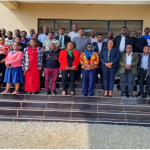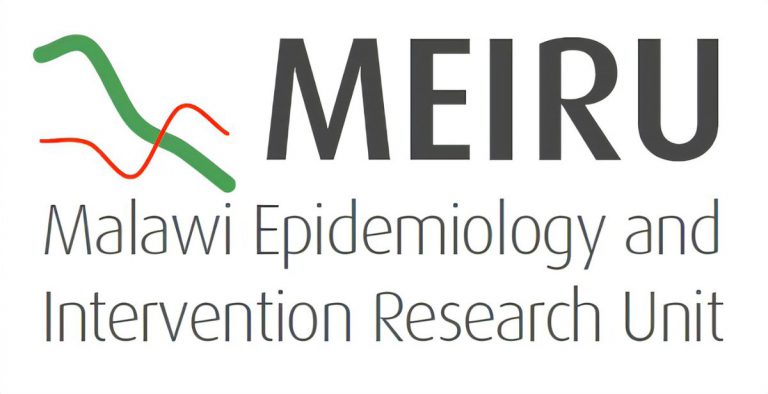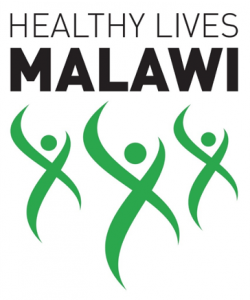PREVENTIVE HEALTH SERVICES IN MALAWI
The core responsibilities of the Preventive Health Services is to efficiently and effectively design and implement preventive and promote health interventions and hence aim to reduce the burden of preventable, communicable and treatable diseases to a level of no public health significance in Malawi. In order to achieve this, the department is guided by different strategic objectives through its programmes by mainly promoting community participation and involvement in the utilization of cost-effective essential health care packages.
The preventive health services department is one of the largest departments in the Ministry of Health and is home to the Health promotion services, epidemiology services, malaria prevention control programme, Tuberculosis control programme, Skin and leprosy programme, Environmental Health, Primary health care, Expanded Programme on Immunization Onchocericasis programme bilharzia control programme, public health reference laboratory, national Trypansomiasis programme Acute Respiratory Infections programme.
OUR VISION
The vision of the Environmental Health Services Section is to have a healthy Malawi free from environmental health risks.
MISSION STATEMENT
To improve the health status of all people in Malawi by creating an environment free from Environmental health risks through provision of environmental health services offered by committed environmental health officers and other players

Overall programme objectives are to detect, prevent and control the occurrence of diseases and hazards resulting from environmental factors such as water, air, soil, and work environments.
Priority areas that require attention and intervention to promote Environmental Health services:
1. Food Safety and Hygiene (FSH)
2. Health and Safety
3. Disease prevention and control including vector management
4. Water, sanitation and hygiene
5. Port Health
6. Vector and Vermin Control
 The 2008 Ouagadougou Declaration urged member states to revitalize PHC through “Community ownership and participation”. The declaration indicates that in order to improve community ownership and participation, member states are recommended to consider a number of issues including developing a policy and providing guidelines to strengthen community participation, promoting health awareness and fostering the adoption of healthier lifestyle, strengthening community management structures, including empowering communities and ensuring their involvement in the governance of health services through appropriate capacity-building.
The 2008 Ouagadougou Declaration urged member states to revitalize PHC through “Community ownership and participation”. The declaration indicates that in order to improve community ownership and participation, member states are recommended to consider a number of issues including developing a policy and providing guidelines to strengthen community participation, promoting health awareness and fostering the adoption of healthier lifestyle, strengthening community management structures, including empowering communities and ensuring their involvement in the governance of health services through appropriate capacity-building.

The national Public Health Reference Laboratory (PHL) is a “stand alone laboratory” and its functions are well beyond the health sector. It started its operations in 1988 and by the year 2011, the PHL became an umbrella designation for 6 distinct laboratories:
- HIV Reference Laboratory
- Nutrition Laboratory
- National TB Central Reference Laboratory
- Biochemistry
- Microbiology
- Parasitology
Its functional roles extend to actively support to the public sector, CHAM, private sector and the academia, including the University of Malawi (mostly Chancellor College; Lilongwe University of Agriculture and Natural Resources (LUANAR) and College of Medicine (COM) and other non-government organizations.
The Epidemiology Unit is responsible for the following areas:
- Implementation of Integrated disease surveillance and response (IDSR) which monitors 15 diseases or conditions such as Malaria, TB, Schistosomiasis, AFP, NNT, Measles, Bacterial meningitis, Viral Haemorrhagic fever, STIs, cholera, HIV and AIDS, Dysentery, Plague, Poliomyelitis, Leprosy, and Pneumonia in under 5 children.
- Implementation of cholera control and prevention activities.
- Implementation of HIV Sentinel Surveillance.
- Coordinating and implementing ARV monitoring and threshold surveys
In November 2011 the Ministry of Health (MoH) formed a Task Force to develop a Strategic Plan, Concept Paper and Road Map as well as lead, advise and coordinate the consultations and development process towards the establishment of a Public Health Institute of Malawi (PHIM). The Task Force completed its work in August 2012 and the MoH Senior Management approved establishment of PHIM in November 2012.
A team was formed that will:
- Cost the Strategic plan
- Develop the work plan for inception of PHIM
- Mobilize resources for construction of PHIM
- Construct PHIM
- Turning of PHIM into a Public Trust
- Operationalization of PHIM
The functions or the definition of such an institute can be done in a form of the statements shown below:
- Public Health Institutes provide science-based leadership and public health services, and they help catalyze the responses of countries to important public health challenges,
- They are science-based organization or network of organizations that provides national leadership and expertise to efforts to achieve substantive, long-term improvements in the public’s health,
- They are multi-faceted organizations that include people with a wide range of skills and experience who perform critical public health functions, such as surveillance and research,
- Examples include US Centres for Disease Control and Prevention (CDC).
PHIM objectives and setup:
1. PHIM will be a centre of excellence in public health that contributes towards quality and productive life of all Malawians,
2. Through its functions of providing evidence informed public health interventions and guidance on public health policy formulation, it will enable MoH to:
- Attain health related Millennium Development Goals (MDGs) and,
- Attain the Malawi Growth Development Strategy (MGDS),
- Address public health challenges, and,
- Effectively respond to public health emergences.
3. PHIM will have the following scientific and administrative divisions:
- Scientific divisions
i. Public Health Reference Laboratory
ii. Surveillance, Research and Development
iii. Disease Prevention and Response
- Management and administrative divisions
i. Development of human resources for public health
ii. Financing and Administration

The Health Education Section (HES) was officially established by the Ministry of Health in 1969.
Since its inception, HES has been required to respond to a rapidly changing environment of health education behaviour in which the demand for its services has rapidly grown. Health Education Services manages all health communications for the Ministry of Health.
Vision: A Malawi where all new-borns, infants, children and adolescents survive, thrive and
transform to their fullest potential.
Mission: To ensure survival, health, child development, and wellbeing of all newborns, children
and adolescents in Malawi, through effective delivery of quality evidence-based, high impact,
holistic and integrated interventions at all levels of the health care system.
Strategic Goal: To reduce under-five mortality to 30 deaths per 1,000 live births and neonatal mortality to 15 deaths per 1,000 live births by 2026. These goals will contribute to achieving a reduction in childhood morbidity and mortality in line with SDG targets for 2030.
The drive in realizing the Child Health outcomes is guided by the following values and
principles
i. Leadership and mutual accountability: All stakeholders shall discharge their respective
mandates in a manner that takes full responsibility for the decisions made in the course of
providing health care.
ii. Human Rights and Equity Based Approach: This principle ensures respect for human
rights and fundamental freedoms including the right to life, human dignity, equality and
freedom from any form of discrimination, and encompasses all provisions in the
Convention on the Rights of the Child. Therefore, all the people of Malawi shall have
access to health services without distinction of ethnicity, gender, age, disability, sexual
orientation, mental and health status, religion, political belief, economic, socio-cultural
condition or geographical location. The rights of health care users and their families,
providers, and support staff shall be respected and protected.
iii. Gender Sensitivity: Gender inequality is a root cause of many barriers to sustainable
development around the world and it continues to have a negative impact on a range of
Reproductive Maternal, Newborn, Child and Adolescent health (RMNCAH) issues.
Gender related power imbalances contribute to excess female mortality and morbidity
across the lifecycle. Harmful gender norms affect men and boys by encouraging risk
taking and by limiting their health seeking behaviour (Save the Children Gender Equality
Programme Guidance & Toolkit,2014). This strategy therefore encompasses protection
and promotion of human rights which will be essential in preventing maternal, newborn,
child and adolescent mortality and morbidity in Malawi.
iv. Ethical Considerations: The ethical requirement of confidentiality, safety and efficacy in
both the provision of health care and health care research shall be adhered to and
respected for every Malawian citizen.
v. Efficiency and effectiveness: Efficiency and effectiveness will remain the hallmark in
the use of available health care resources to ensure that consumers of health services are
not deprived of their rights to health and maximise health outcomes.
vi. Community Participation: Implementation of the 2021-2026 Child Health Strategy will
be done at all levels of care including the community level. Implementation will take into
consideration of the other existing strategies including the Community Health Strategy.
Community contribution will be through the defined structures such as the Community
Health Action Groups (CHAGs), care groups, support groups, CBOs, ADCs, community
and religious leaders among others. Both curative and preventive services will be
provided by community health workers such as HSAs, Community Health Nurses,
Community Midwives Assistants. Services will be provided at household level,
community level through home visits, outreach clinics, village clinics, and at health posts.
vii. Evidence-based decision making: Interventions shall be based on proven and cost-
effective best practices. Lessons and evidence generated through research during
implementation will be used to inform ongoing adjustments in service provision.
viii. Partnership and Multi-sectoral Collaboration: Public-Private Partnership (PPP)
and multi-sectoral collaboration shall be encouraged and strengthened to address the
determinants of health.
ix. Decentralisation: Health services management and provision shall be in line with the
Local Government Act of 1998 which entails devolving decision making around health
service delivery to local assemblies.
x. Innovation: All health care providers shall use approved health care technologies that are
appropriate, relevant and cost effective. Introduction of new innovations will be
encouraged in line with the Digital Health Strategy.
xi. Responsiveness: The child health services shall be responsive to the needs of Malawians,
including children and adolescents.
Strategic Objectives are to;
1. Achieve universal health coverage of selected high-impact cost effective interventions for
maternal, new-born and child survival and development by 2030.
2. Strengthen interventions that promote uptake of high impact cost effective interventions
by 2030
3. Strengthen the capacity of systems for leading, managing and providing high-impact and
low-cost priority interventions for women and children by 2030

PREVENTIVE HEALTH PROGRAMMES IN MALAWI
The Preventive Health Programmes have been effectively designed and implemented to prevent and promote health interventions and hence aim to reduce the burden of preventable, communicable and treatable diseases in Malawi. In order to achieve this, the directorate of Preventive Health Services is guided by different strategic objectives through its programmes by mainly promoting community participation and involvement in the utilization of cost-effective essential health care packages.
The following programmes are currently taking place:
- Malaria Prevention and Control Programme
- Tuberculosis Control Programme
- Skin and Leprosy Programme
- Expanded Programme on Immunization
- Onchocericasis Programme
- Bilharzia Control Programme
- Trypansomiasis programme
- Acute Respiratory Infections programme
Preventive Health Team

Dr. Storn Kabuluzi
Director of Preventive Health Services

Dr. Storn Kabuluzi
Director of Preventive Health Services

Dr. Mike Chesema
Deputy Director of Preventive Health Services







